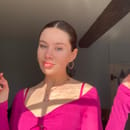I have always struggled with the concept of self-help books. ‘Self-help’ – a cliched and overquoted phrase – carries a sense of impending judgement on an individual’s ability to be the best version of themselves in all things, even if this is in no way the author’s intention. Many authors of self-help books are motivational, well-intentioned people who hope to pass their wisdom onto the masses. And yet, they are submerged within the sink hole that is the self-help genre. A vicious cycle of reading which, like a New Year’s resolution, typically dies a slow and painful death via inconsistency, plummeting expectations, and a sense of personal failure. This is a dark rabbit hole in which to find yourself falling.
My caution around self-help books is based on the following concerns:
- A sudden attempt to force new behaviour patterns into your life can make them become both a chore and a punishment.
- If you are unable to live up to the hype of the book in question, and the change in lifestyle it promised you, do you even want to help yourself? This kind of questioning can lead to self-criticism and general despondency.
- The idea of helping yourself seems positive on the surface but implicitly suggests that the present ‘you’ is unsatisfactory or unworthy.
Let me tell you now, even if you are ending January face down in a chocolate cake, in the same set of pjs you started the month in, that’s okay. I promise.
I propose that, for the year of 2023, you try something a little different. Reach for a book which you think will spark your creativity and curiosity about the world. There is no need to panic or rush. Enjoy exploring things that you like. Relax into it and you will find your mind subconsciously expanding your horizons for you. Personal growth will come as a natural side effect of leaning into the parts of life which you find inspiring. You may even discover that you can circle back to self-help books with a secure mindset and reap the benefits. Or not. Who cares? Any book which makes you feel good and/or makes you think, is worth your time this year.
The difficult part of this philosophy is that it is deeply personal. The books best suited to you can only be discovered by you via trial and error. Nevertheless, I can tentatively offer you a small cross-section of volumes that I started my year with.
POETRY
‘The Poetry Pharmacy: Tried-And-True Prescriptions for the Heart, Mind and Soul’, edited by William Sieghart
A beautiful collection of poems that you can dip into for whatever is ailing you: be it love, loss, or self-acceptance.
NON-FICTION
‘The Fairy Tellers’, by Nicholas Jubber
A historical plunge into the origins of modern-day fairy tales in all their manifestations. This book will take you across the globe in its tireless pursuit of the ideas, hopes, and dreams of the storytellers now immersed in time.
FICTION
‘The Beautiful Ones’, by Silvia Moreno-Garcia
A gothic novel with a voice-driven plot and plenty of subtle commentary on society, gender roles, and relationships. Don’t worry, there’s magic too.
ESSAY COMPILATION
‘This Is How We Come Back Stronger’, a series of essays compiled and edited by The Feminist Book Society
“Published on the one-year anniversary of lockdown, writers from both sides of the Atlantic reflect on what matters most in these difficult days, and what the future can hold for us all.”
MEMOIR/BIOGRAPHY
I hesitate to recommend here as this is the genre which should be most influenced by your own preferences. However, my recent reads include:
‘Madly, Deeply: The Diaries of Alan Rickman’, edited by Alan Taylor
‘Terry Pratchett in His Own Words: A Slip of the Keyboard’, a published collection of Pratchett’s speeches, writings etc.
THE CLOSEST I DARED TREAD TOWARDS THE SELF-HELP GENRE
‘Creative Visualisation: Use the Power of Your Imagination to Create What You Want in Your Life’, by Shakti Gawain
A book which I allowed myself to read gently without expectation or pressure. With these mental bindings absent, I was able to be genuinely fascinated by the process of creative visualisation described by Gawain.


